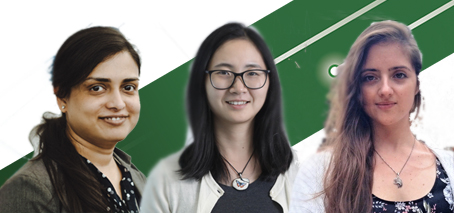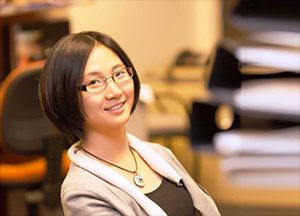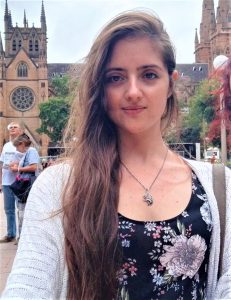FLEET welcomes three new research fellows, who will be working in diverse roles across the Centre:
- Dr Semonti Bhattacharyya (Monash)
- Dr Peggy Qi Zhang (UNSW)
- Dr Iolanda Di Bernardo (Monash)
The three new positions have been filled via the Women in FLEET fellowship, which forms part of FLEET’s mission to create workplace diversity and retain female scientists within STEM.
Dr Semonti Bhattacharyya (Monash) is an experimental condensed matter physicist who has worked extensively on electrical transport properties of topological materials and nanofabrication of 2D materials and their heterostructures.
“I describe my work as using atomic ‘building blocks’, much like a Lego set,” says Semonti, whose research description was shortlisted for Famelab Victoria 2019.
The inexpensive, remote-controlled facility she has designed allows her to stack different 2D materials on top of each other, building unique, ‘hybrid’ materials for use in ultra-low energy electronic devices.
Semonti will work in FLEET Research theme 1, topological materials and Enabling technology theme A, atomically-thin materials, working with chief investigator (CI) Prof Michael Fuhrer.
Semonti is already familiar with FLEET across multiple nodes, having previously worked with Prof Kourosh Kalantar-Zadeh (UNSW) and Dr Torben Daeneke (RMIT) on printed oxides on graphene devices, with Dr Agustin Schiffrin (Monash) and Prof Jeff Davis (Swinburne) on ultrafast measurements in graphene. Semonti also recently visited FLEET partner investigator Jim Hone at Columbia University to explore potential collaboration.
Dr Peggy Qi Zhang (UNSW) is a material scientist who began her research career with chemical-solution deposition derived bismuth-ferrite thin films and nano structures, and has since moved on to topological ferroelectric materials, characterising ferroelectrics using SPM, topological defect engineering in nanoscale ferroelectrics, topological transitions in ultra-thin ferroelectrics and SPM tip-induced topological defect engineering.
“I look forward to continuing my research on topological ferroelectric materials,” says Peggy. “Particularly in a Centre that pursues high-quality, advanced research collaborations, and is such a supportive and encouraging environment for young mothers”.
Peggy will work with CI Prof Nagy Valanoor in FLEET’s Enabling Technology Theme A, investigating new low-energy electronic devices founded on topological materials, and on synthesis of ferroelectric and ferromagnetic heterostructures, and novel topological oxides within Research Theme 1 and Theme 2.
Peggy is very familiar with FLEET, having worked with ferroelectrics alongside Prof Valanoor at UNSW for four years, and collaborated with CI Prof Jan Seidel’s group (UNSW), and associate investigator (AI) Prof Laurent Bellaiche (University of Arkansas).
Dr Iolanda Di Bernardo (Monash) has a unique set of skills in material synthesis, spectroscopy and photoemission-based characterisation of low-dimensional systems that makes her a perfect bridging link between the groups of FLEET’s Prof Michael Fuhrer and AI Dr Mark Edmonds.
At FLEET, Iolanda will strengthen her expertise with different techniques (ncAFM, MBE, transport measurements) and systems (novel 2D materials, topological materials, low-dimensional organic nanostructures), cementing collaboration within the three groups.
“I look forward to becoming part of the large FLEET network,” says Iolanda, “and exploiting the possibility to establish new links while reinforcing the ones already in place”.
Iolanda will be contributing to FLEET Research theme 1, topological materials and Enabling technology theme A, atomically-thin materials.
Previously, Iolanda was a spectroscopy expert at the ANU, specialising in cutting-edge non-UHV synthesis and characterisation methods.




